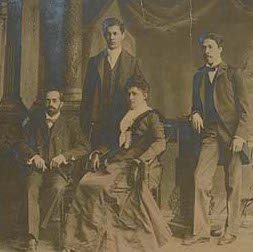 Louisiana State University in Baton Rouge has recently established an online archive of documents relating to free people of color in the state during the pre-Civil War period. Some items in the archive, including photographs, pertain to descendants of free persons of color who lived in Louisiana prior to the Civil War.
Louisiana State University in Baton Rouge has recently established an online archive of documents relating to free people of color in the state during the pre-Civil War period. Some items in the archive, including photographs, pertain to descendants of free persons of color who lived in Louisiana prior to the Civil War.
In Louisiana, free people of color enjoyed a relatively high level of acceptance and prosperity during the antebellum period, a legacy from the state’s French and Spanish antecedents. They were most heavily concentrated in New Orleans, where they often worked as artisans and professionals. In 1810, free people of color made up 29 percent of the population of New Orleans.
Tara Laver, curator of manuscripts at LSU Libraries and director of the archive project, notes that “relatively few collections of papers from free families of color survive in archives in Louisiana, nor are they numerous in archives elsewhere in the United States. The most extensive collections of family papers for free people of color held by Louisiana repositories are, in fact, split across institutions. Digitizing these records has allowed us to reunite them virtually, making these materials accessible in one place for the use of historians, descendants of free people of color, genealogists, students, teachers and anyone who is interested in this important aspect of our nation’s history.”
The archival project was funded by a two-year, $194,152 grant from the National Endowment for the Humanities.

